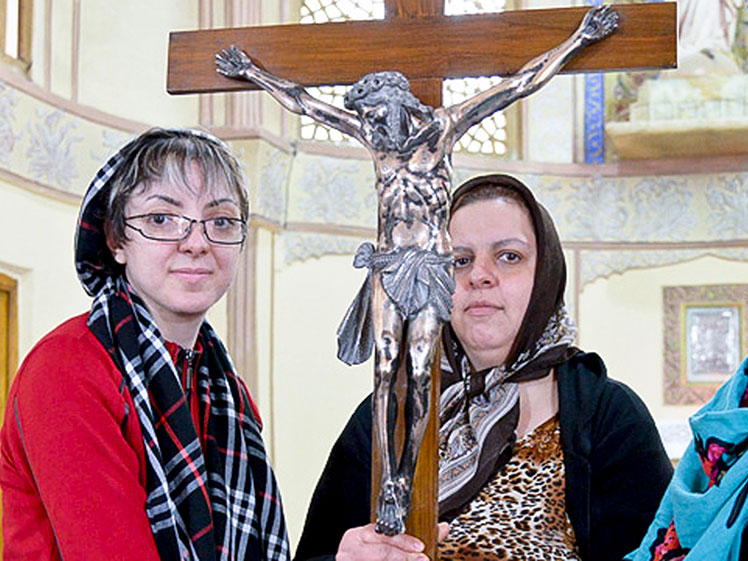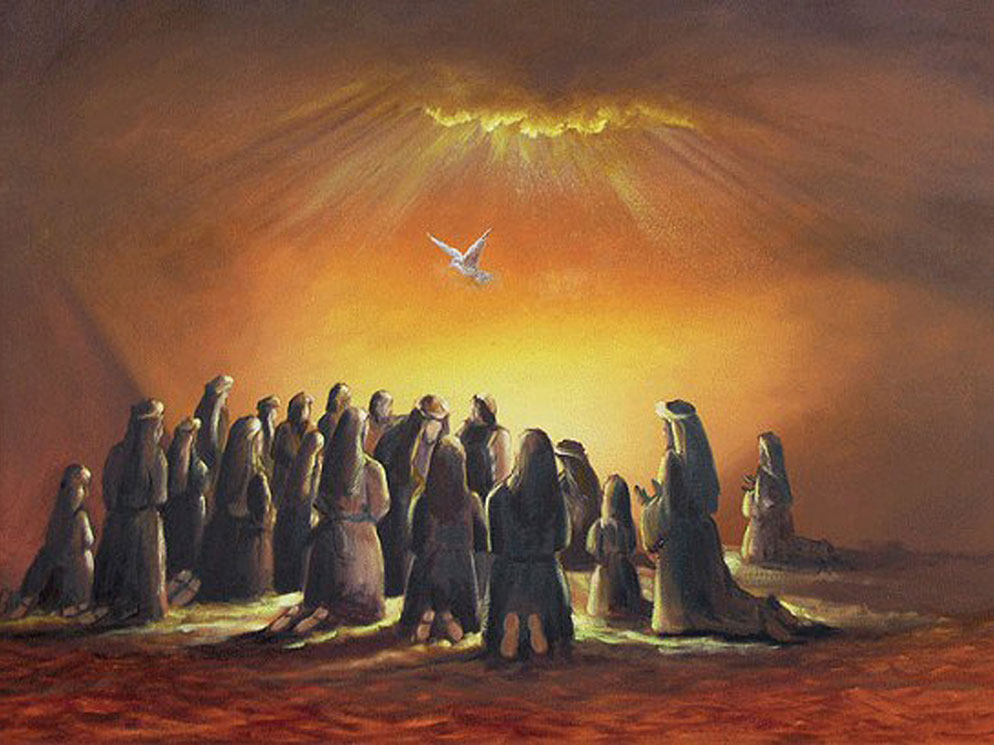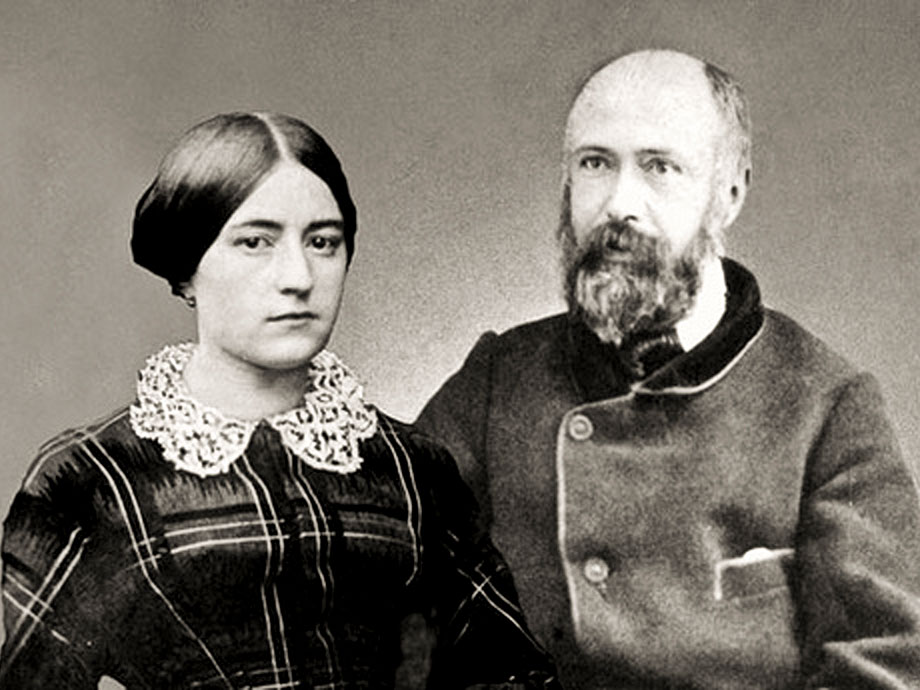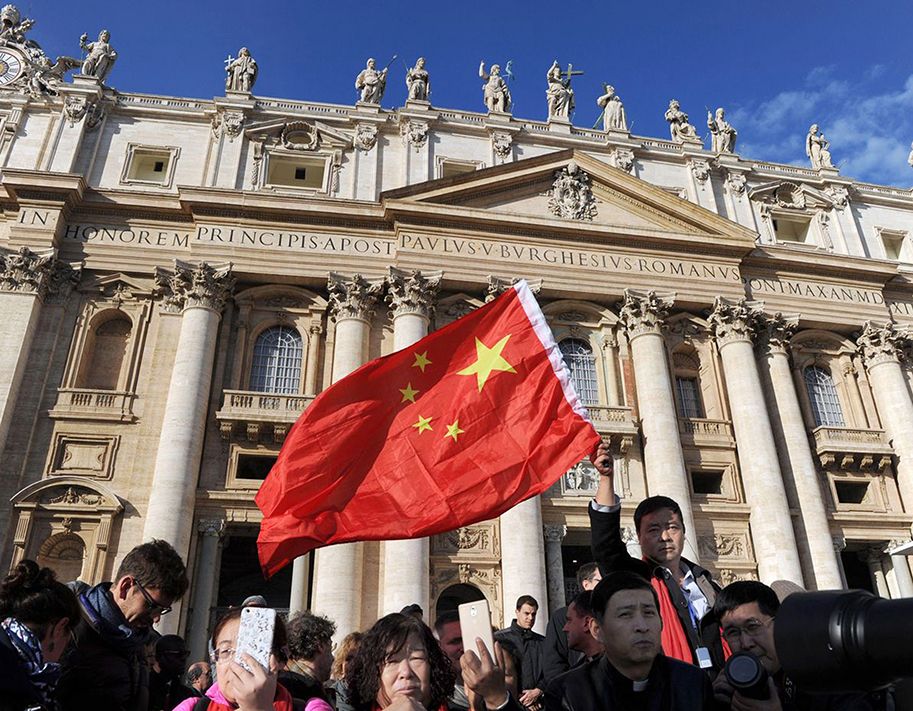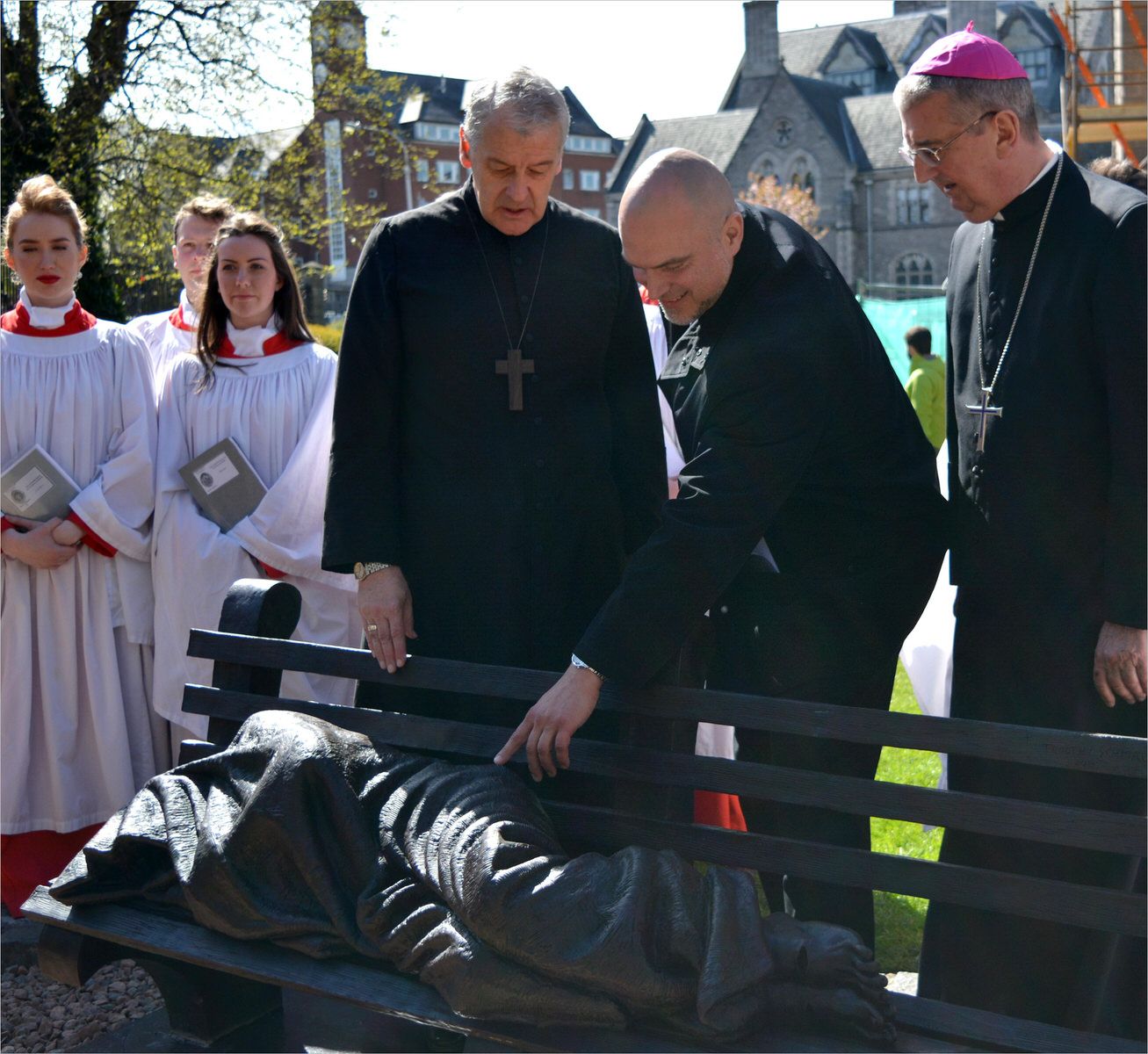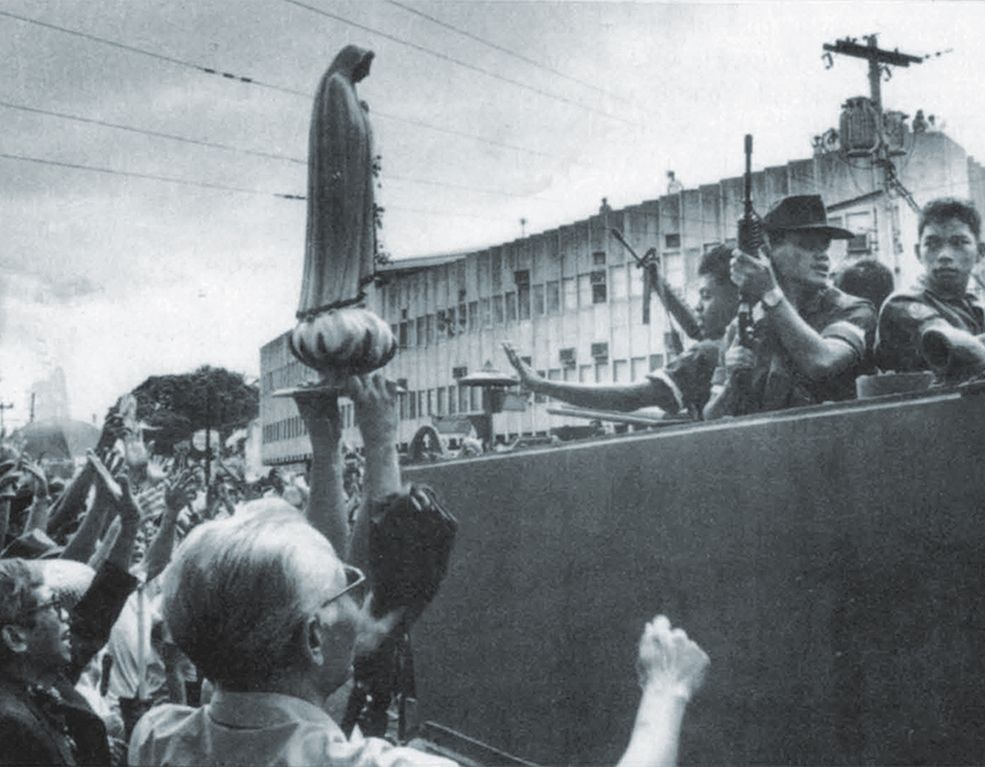The Joy of the Gospel, Pope Francis’ rather lengthy Apostolic Exhortation, is presented in five chapters. In the opening sections of the second chapter, “Amid the Crisis of Communal Commitment,” Francis, quoting Paul VI, exhorts all communities to an “ever watchful scrutiny of the signs of the times.” Then, once again, as he concludes the same chapter, he speaks of our attempt “to read the signs of the times.” One may validly assert that Francis is situating his reflections within the framework of the imperative to discern God’s action through signs.
For Francis, this task of examining current realities in the light of Christian faith is “a grave responsibility.” He proposes using “an evangelical discernment” which is “the approach of a missionary disciple” who is guided by “the light and strength of the Holy Spirit.” Francis admits: “It is not the task of the Pope to offer a detailed and complete analysis of contemporary reality.” However, Christian faith does demand “recognizing and discerning spirits” and ultimately “choosing movements of the spirit of good and rejecting those of the spirit of evil.”
This presentation seeks to examine how Francis can be seen to be employing a type of “signs of the times” methodology in Evangelii Gaudium, especially as he presents his insights in Chapter Two: “Amid the Crisis of Communal Commitment.” With this in mind, it would perhaps be useful to provide some background perspectives related to the use of a “signs of the times” approach in recent decades, particularly as it emerged in the context of the Second Vatican Council.
A VATICAN II POPE
Francis is the first pope in many decades who was not actually present during the deliberations of Vatican II. Remarkably, five popes did take an active role in the Council: John XXIII, Paul VI, John Paul I, John Paul II, and Benedict XVI. However, as manifested in Evangelii Gaudium, Francis is clearly imbued with Council perspectives. He quotes from several Council documents and generously employs copious references to both Lumen Gentium and Gaudium et Spes. He asserts that “it is important to draw out the pastoral consequences of the Council’s teaching.”
On two occasions, Francis directly quotes John XXIII’s opening address to the Council, recalling at length John XXIII’s clear disagreement with the “prophets of doom.” Francis also notes that “fifty years after the Second Vatican Council,” the Church does not adopt a “naïve optimism,” but this “must not mean that we are any less trusting in the Spirit or less generous.”
In addition, Francis liberally uses texts from Pope Paul VI. He twice quotes Ecclesiam Suam, Paul VI’s first encyclical, written in 1964 during the Council. One finds over a dozen quotes from Evangelii Nuntiandi. In the first two quotes of Evangelii Gaudium, Francis directly cites Paul IV’s 1975 apostolic exhortation, Gaudete in Domino (On Christian Joy), a document that obviously influenced the writing of Evangelii Gaudium. Furthermore, even without presenting a full documentation of the writings of John Paul II and Benedict XVI, one recognizes that Francis is remarkably conversant with the popes’ documents, and theological themes of Vatican II.
HISTORICAL BACKGROUND OF “SIGNS OF THE TIMES”
The Second Vatican Council was convoked by Pope John XXIII in the Apostolic Constitution, Humanae Salutis, dated December 25, 1961. In this document, John XXIII first used the expression “signs of the times.” Here, one finds the beginnings of a new direction in theological methodology. John XXIII’s encyclical Pacem in Terris has a section concluding every chapter which is entitled the “Signs of the Times.” In this, his last encyclical, John XXIII enumerated three major signs as important characteristics of our age: the evolving roles of (1) laborers, (2) women, and (3) the “new” nations that were formerly colonies. Undoubtedly, the impetus given by John XXIII to this inductive method of theologizing on life’s events and empirical reality is clearly one of his innovations.
This method is found at the basis of some Council documents. The best known passage is from Gaudium et Spes 4: “The Church has always had the duty of scrutinizing the ‘signs of the times’ and of interpreting them in the light of the Gospel.” Priests are to cooperate closely with the laity “so that, together with them, they will be able to recognize the ‘signs of the times’” (Presbyterorum Ordinis 9). The laity should promote solidarity among all people as one of the key “signs of our times” (Apostolicam Actuositatem 14). The Council encourages “all the Catholic faithful to recognize the ‘signs of the times’ and take an active and intelligent part in the work of ecumenism” (Unitatis Redintegratio 4). Some other passages where an understanding of God’s work in human history is manifested are: Sacrosanctum Concilium 43 and Gaudium et Spes 11, 42, and 44.
BRIEF CLARIFICATION OF TERMS AND METHOD
To achieve the objective of interpreting contemporary history theologically demands methodological precision in using the theology of the “signs of the times” as a locus theologicus. What then is the correct procedure to follow in this form of theologizing to understand Evangelii Gaudium?
According to the Vatican II subcommission dealing with the proper understanding of this approach, the ‘signs of the times’ must be seen as operating on a double plane: the sociological level and the theological level. Within the sociological level itself, a dual reality is present.
On the sociological level, the “signs of the times” emerge from the great changes in science and technology, in transportation and communications, in medicine, in computerization, etc. Society becomes more complexly organized; the world becomes economically interdependent; humanity finds itself living in a “global village;” history seems to speed up. These are simply some of the great changes taking place in the modern world. This lining up of the “sheer facts” is the first dimension of the socio-historical level.
The second aspect of this level is an investigation of these changes by using the behavioral and social sciences. This is done in terms of what effects all these developments have on human consciousness and on social life. How does such rapid and all-pervasive change affect human minds, human hearts, human life? What impact results from change – the impact on human awareness, knowledge, sensibility, aspirations and desires, and so on? The “signs of the times” are NOT the mere facts alone; the facts are, as it were, only the materia ex qua, the matter from which the “signs of the times” arise. Thus, the “signs” are more properly the human desires and questions that arise because of the avalanche of change. In short, what is the “human impact” of the events in humanity’s total environment?
Thus, the method necessarily moves to the theological level; Gaudium et Spes insists that the Church’s task is to scrutinize the “signs of the times” (sociological level) and to interpret them in the light of the Gospel (theological level). Empirical and historical thematizations of reality must be discerned in the light of Christian faith and Gospel values.
This discernment on the theological plane is accomplished by a reflection on the direction in which these signs are pointing. Are they leading human history to be a fulfillment of God’s plans for humanity? Are they, in Paul VI’s words, events which “spontaneously meet higher plans, which we know to be Christian and divine, such as the pursuit of unity, of peace, of justice?” Do they suggest “a simultaneous step forward of the kingdom of God in the human kingdom? Are they a clear manifestation that, as Pope John XXIII spoke of in his Gaudet Mater Ecclesia opening speech at Vatican II and which Pope Francis also quotes in Evangelii Gaudium, “Divine Providence is leading us to a new order of human relations which, by human effort and even beyond all expectations, are directed to the fulfillment of God’s superior and inscrutable designs, in which everything, even human setbacks, leads to the greater good of the Church?” Clearly, this is the theological level where the reflection of faith enters to see just precisely how these developments are furthering or hindering the designs of God.
FRANCIS’ VIEW OF THE CHURCH’S TASK
In several sections of Evangelii Gaudium, Pope Francis expresses his insights on the imperatives facing the Church as it practices an “ever watchful scrutiny of the ‘signs of the times.’” He admits that the Church would not be “well served by a purely sociological analysis which would aim to embrace all of reality” and that it is “not the task of the Pope to offer a detailed and complete analysis of contemporary reality.” Yet this does not mitigate against the “grave responsibility” of the Church to be deeply engaged in understanding and serving contemporary society and humanity.
What Francis envisions is a genuine “evangelical discernment” which is “the approach of a missionary disciple.” “We need to distinguish clearly what might be a fruit of the Kingdom from what runs counter to God’s plan. This involves not only recognizing and discerning spirits, but also – and this is decisive – choosing movements of the spirit of good and rejecting those of the spirit of evil.” In this discernment process, Francis notes: “I take for granted the different analyses which other documents of the universal magisterium have offered, as well as those proposed by the regional and national conferences of bishops.”
Francis favorably cites numerous insights from conferences of bishops around the world. In this way, Francis employs a worldwide perspective in his discerning of the “signs of the times.” He humbly admits: “It is not advisable for the Pope to take the place of local Bishops in the discernment of every issue which arises in their territory.” “It is up to the Christian communities to analyze with objectivity the situation which is proper to their own country,” to effectively read the “signs” for their own location and local Church.
The Pope is clearly aware of “today’s vast and rapid cultural changes that demand we constantly seek ways of expressing unchanging truths in a language which brings out their abiding newness.” And here, once again, Pope Francis quotes the opening speech of John XXIII to the Second Vatican Council: “The deposit of faith is one thing … the way it is expressed is another.” Francis goes on to assert that in “her ongoing discernment” of current “signs” and trends, the Church will realize that some customs and practices “may be beautiful, but they no longer serve as means of communicating the Gospel. We should not be afraid to re-examine them.” Again, a commitment to discerning the “signs of the times” will help the Church realize that she “has rules or precepts which may have been quite effective in their time, but no longer have the same usefulness for directing and shaping people’s lives.”
The open vision and perspective of Pope Francis to discern concrete events of history and their impact on people leads him to many helpful insights. “When properly understood, cultural diversity is not a threat to Church unity.” In fact, “the faith and life of the Church [can] be expressed in legitimate forms appropriate for each culture.” Francis appreciates “the challenge of an inculturated preaching” for an effective communication of the Gospel. Such “signs-sensitive” preaching actually becomes “an exercise in evangelical discernment.”
Francis’ vision of linking the concrete reality of people’s lives with Gospel values is manifested in one of his lengthy quotes from Pope Paul VI: “We know that ‘evangelization would not be complete if it did not take account of the increasing interplay of the Gospel and of man’s concrete life, both social and personal.” Francis then takes this perspective and applies it to the human family “with all its tragedies and struggles, its hopes and aspirations, it strengths and weaknesses.”
In a later section, Francis notes: “I intend to concentrate on two great issues which strike me as fundamental at this time in history. I will treat them more fully, because I believe that they will shape the future of humanity. These issues are: first, the inclusion of the poor in society, and second, peace and social dialogue.” To address these “signs,” Francis enunciates four principles which he believes are foundational for “building a people in peace, justice and fraternity.”
These passages from Evangelii Gaudium are an affirmation that Pope Francis is deeply involved in a “faith-reading” of the “signs of the times.” Francis is humble in his pastoral approach; “the Church does not have solutions for every particular issue.” He states his objective: “Starting from certain social issues of great importance for the future of humanity, I have tried to make explicit, once again, the inescapable social dimension of the Gospel message and to encourage all Christians to demonstrate it by their words, attitudes and deeds.” Francis invites all Christians to engage the ever-changing world as “Spirit-filled evangelizers” who are “full of fervor, joy, generosity, courage, boundless love and attraction.”
A BRIEF LIST OF “SIGNS”
As one navigates through Evangelii Gaudium, the great panorama of subjects that Pope Francis treats emerges. More than just a catalogue of topics, these many areas may be considered “signs” which the Church must attentively address as she embarks upon “a new chapter of evangelization.” Some areas noted by Francis are: “health care, education and communications,” “a ‘throw away’ culture,” “an impersonal economy,” “widespread corruption and self-serving tax evasion,” “inordinate consumption,” “attacks on religious freedom,” “human trafficking, the narcotics trade, the abuse and exploitation of minors, the abandonment of the elderly and the infirm,” “heightened individualism,” and many more.
Francis is not overwhelmed by current realities. He asserts: “The evils of our world – and those of the Church – must not be excuses for diminishing our commitment and our fervor. Let us look upon them as challenges which can help us grow.” “Challenges exist to be overcome! Let us be realists, but without losing our joy, our boldness and our hope-filled commitment.”
Time and again, Evangelii Gaudium provides a profound faith-perspective which assists Christians in their reading of the “signs” and in living their commitment as missionary disciples. Francis boldly states: “In our time, humanity is experiencing a turning point in its history.” “Seeing reality with the eyes of faith, we cannot fail to acknowledge what the Holy Spirit is sowing.” The Church is to recognize that “the changes taking place in these great spaces and the culture which they create are a privileged locus of the ‘new evangelization.’” “What is called for is an evangelization capable of shedding light on these new ways of relating to God, to others and to the world around us, and inspiring essential values.” The “new world” in which we live means that Christians must “realize that a uniform and rigid program of evangelization is not suited to this complex reality.”
Challenges not only exist in the external world; they are also present within the Church. Francis notes: “One can observe in many agents of evangelization, even though they pray, a heightened individualism, a crisis of identity, and a cooling of fervor. These are three evils which fuel one another.” “They end up stifling the joy of mission.” “It pains me greatly to discover how some Christian communities, and even consecrated persons, can tolerate different forms of enmity, division, calumny, defamation, vendetta, jealously…. Whom are we going to evangelize if this is the way we act?”
CREATIVE RESPONSES TO CHALLENGING “SIGNS”
To assist Christians in addressing profound challenges, both within and outside the Church, Francis presents an innovative list of eight “no” statements and seven “yes” exhortations. First, employing a kind of via negativa, Francis alerts us to factors that could diminish the Church’s effectivity in the world today. He bluntly says: “no to an economy of exclusion”; “No to the new idolatry of money”; “no to a financial system which rules rather than serves”; “no to the inequality which spawns violence”; “no to selfishness and spiritual sloth”; “no to sterile pessimism”; “no to spiritual worldliness”; and, “no to warring among ourselves.”
Francis also exhorts us to be vigilant and not to let ourselves be “robbed” of pivotal dimensions of the Christian life: “Let us not allow ourselves to be robbed of missionary enthusiasm!”; “Let us not allow ourselves to be robbed of the joy of evangelization!”; “Let us not allow ourselves to be robbed of hope!”; “Let us not allow ourselves to be robbed of community!”; “Let us not allow ourselves to be robbed of the Gospel!”; “Let us not allow ourselves to be robbed of the ideal of fraternal love!”; and, “Let us not allow ourselves to be robbed of missionary vigor!”
These “no” statements and “yes” exhortations clearly show that Pope Francis is neither naïve nor unrealistic in his efforts to promote the new evangelization within the Church. He is simply reflecting the realism needed to read the “signs” for a more effective missionary evangelization. He affirms that “in spite of everything, Saint Paul’s exhortation is directed to each of us: ‘Do not be overcome by evil, but overcome evil with good’ (Rom 12:21). And again: ‘Let us not grow weary in doing what is right’ (Gal 6:9).”
ASIAN ECHOES IN EVANGELII GAUDIUM
Francis’ exhortation has found wide acceptance and resonance in the Asian context. In addition to Francis’ very personal style of writing and his heartfelt appeal for a joyful, enthusiastic commitment to evangelization, Francis has recognized the dedicated work and insights of the local Churches of Asia. In particular, the Pope quotes Ecclesia in Asia six times. He speaks about “the stability of the family,” “the explicit proclamation of Jesus as Lord,” “joyful, patient and progressive preaching,” “faith cannot be constricted to the limits of understanding and expression of any one culture,” “the Holy Spirit is the principal agent [of evangelization],” and, “a pedagogy which will introduce people step by step to the full appropriation of the mystery.”
On another, and perhaps even more profound, level, Pope Francis’ inductive approach to reading the “signs” as a pivotal approach to discerning the Church’s mission of evangelization is characteristically Asian. In the context of Asia, the Church’s mission is seen as emerging concretely and pastorally from life’s realities as the locus of doing theology. Ever since the 1970 meeting of 180 Asian bishops with Pope Paul VI in Manila, from which the Federation of Asian Bishops’ Conferences (FABC) emerged, a type of “ground up” or “emerging from below” pastoral-missionary praxis has prospered. A unique pastoral methodology is promoted by the FABC to facilitate the growth of inculturated, missionary local Churches. The FABC has evolved a unique approach of pastoral engagement. This four-stage “Asian” approach of the FABC is termed the “AsIPA method,” the Asian Integral Pastoral Approach.
First, the AsIPA process begins with exposure-immersion. It may also be called “entering into a dialogue-of-life.” Exposure-immersion follows the basic principle of the Incarnation; local Christians seek to share the daily lives of their neighbors and communities and read the “signs of the times.” The second stage of social analysis follows. Communities try to evaluate the social, economic, political, cultural, and religious systems in society. They observe and analyze events and trends, discerning the impact of rapid social change on human lives. They evaluate the “signs of contemporary times,” the events of history, as well as the needs and aspirations of people and communities.
Asians have seen the necessity of integrating social analysis (stage two) with the contemplative dimension (stage three) of integral evangelization; this third stage of faith reflection emerges from Asia’s religio-cultural heritage. Through this contemplation, people discover God’s presence and activity within social realities, discerning not only negative and enslaving social aspects, but also the positive, prophetic aspects of life that can inspire genuine God-awareness and spirituality. This stage in the total process has proven very beneficial. For example, it enables the poor to make their unique contribution to Church and society; the AsIPA method brings prayer and spirituality into the mission of evangelization.
The third stage of ongoing spiritual-theological reflection issues into the fourth stage called pastoral planning, which seeks to translate the previous three stages into actual, realizable mission plans of action. Indeed, concrete, inculturated programs of evangelization are ultimately necessary. In the perspective of the FABC, they are best conceived through this Asian process (AsIPA) that actively reads the “signs” and discerns what the Lord of history is challenging the Church to be and to do. In this process, Pope Francis and the FABC are truly kindred spirits!
JOY, PIVOTAL SIGN OF MISSIONARY DISCIPLES
The obvious focus on joy in Evangelii Gaudium is seen in the sheer number of times that words such as joy, joyful, and joyfully are repeated (nearly 100 times). Pope Francis has mined the treasures found in the two interrelated apostolic exhortations written by Paul VI in 1975: Evangelii Nuntiandi (Evangelization in the Modern World) and Gaudete in Domino (On Christian Joy). Both popes constantly assert that if the Gospel is not heard from “joyful evangelizers,” it will not be heard at all by contemporary humanity. The lack of joy and hope is an obstacle to effective evangelization. In the introduction of Evangelii Gaudium, Francis quotes extensively the sentiments of Paul VI who believed that joy would enable the world of our time “to receive the Good News not from evangelizers who are dejected, discouraged, impatient or anxious, but from ministers of the Gospel whose lives glow with fervor, who have first received the joy of Christ” (Evangelii Nuntiandi 80).
The success of the “new evangelization” requires “renewed evangelizers.” Jesuit Pierre Teilhard de Chardin once wrote: “Joy is the most infallible sign of the presence of God.” Joy is convincing; joy evangelizes. All the daunting “signs of the times” and the complex dimensions of the “new evangelization” will not overwhelm those whose lives have been transformed by a joyful encounter with the Risen Lord. With heartfelt emotion, Pope Francis writes: “I invite all Christians, everywhere, at this very moment, to a renewed personal encounter with Jesus Christ…. I ask all of you to do this unfailingly each day.” “I wish to encourage the Christian faithful to embark upon a new chapter of evangelization marked by this joy.”
Missionary disciples must listen frequently to the admonition of Saint Paul: “Rejoice in the Lord always. I shall say it again: rejoice! Your kindness should be known to all. The Lord is near” (Gal 4:4). Be transformed by joy. Surrender to the Lord of Joy for He is Jesus, Joy of Man’s Desiring! Become a joyful herald of the “new evangelization!”
* The full documented text of this article is available from: jhkroeger@gmail.com






